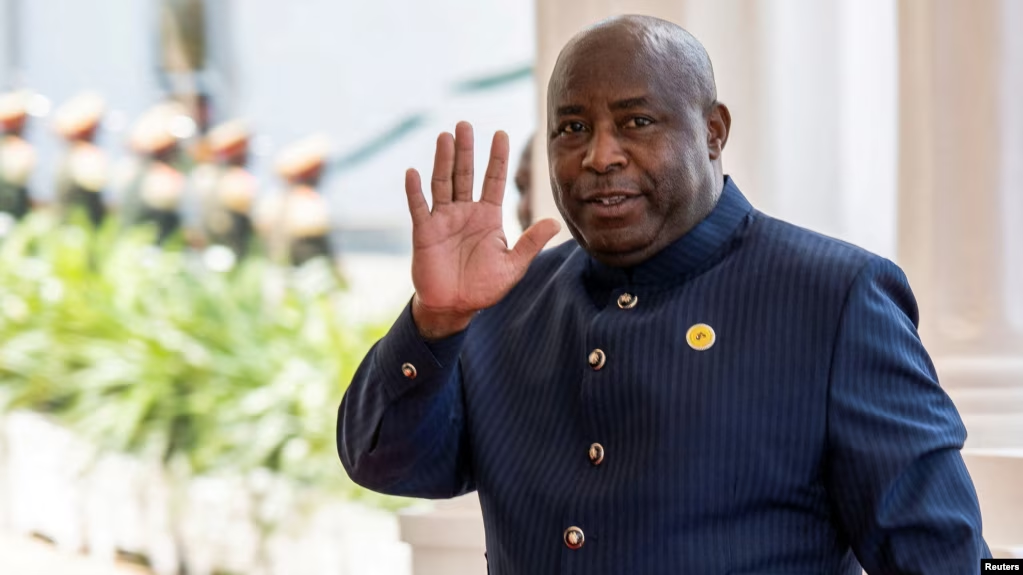
In an exclusive interview with the BBC, Burundi’s President Évariste Ndayishimiye has accused Rwanda of planning an attack on his country, citing what he calls “credible intelligence”.
He further claimed that Rwanda was behind a failed coup attempt in Burundi a decade ago, drawing parallels to its alleged involvement in the Democratic Republic of Congo (DRC).
“We know that [Rwanda’s President Paul Kagame] has a plan to attack Burundi. Burundians will not accept to be killed as Congolese are being killed. Burundian people are fighters.”
Rwanda Rejects Accusations, Calls Them ‘Surprising’
Rwanda has denied the allegations, calling them unexpected. The Rwandan government insists that the two countries have been working on border security cooperation despite tensions that led to the closure of their shared border over a year ago.
The accusations come amid mounting regional instability, with Rwanda facing international scrutiny over its alleged support for rebel groups in the DRC—claims that Rwanda has consistently denied despite UN reports linking the country to the M23 rebels.
Burundi Alleges Rwandan Support for Red Tabara Rebels
President Ndayishimiye also accused Rwanda of backing Red Tabara, a rebel group responsible for recent attacks in Burundi. He compared Rwanda’s support for Red Tabara to its alleged backing of M23 in the DRC, saying both groups serve as proxy forces for Kigali.
“They would say it’s an internal problem, but Rwanda is the problem,” Ndayishimiye said.
He added that Burundi has no plans to attack Rwanda but warned that his country “will not sit idle if we are attacked.”
The 2015 Coup Attempt: Burundi’s Unresolved Grievance
President Ndayishimiye also revisited Burundi’s 2015 coup attempt, reiterating his claim that Rwanda was involved.
“The people who did the 2015 coup were organized by Rwanda. They recruited youth from [Mahama Refugee Camp], trained them, armed them, and financed them. They are still living under Rwanda’s protection.”
He called on Rwanda to hand over those responsible for the coup, suggesting that this would help resolve tensions between the two nations.
The DRC Conflict and Its Impact on the Region
Beyond its dispute with Rwanda, Burundi remains deeply concerned about the ongoing crisis in the DRC, where M23 rebels and Rwandan troops have seized large parts of eastern Congo since January.
According to President Ndayishimiye:
- The conflict is not just about ethnic tensions but also about control over the DRC’s vast mineral wealth.
- External forces are fueling instability to maintain access to Congo’s natural resources.
- The international community must bring all stakeholders—including political opposition and armed groups—to the table for a long-term peace solution.
Burundi’s Stance on the DR Congo Crisis
Ndayishimiye dismissed Rwanda’s justification that its intervention in the DRC is aimed at neutralizing the FDLR (a Rwandan rebel group with alleged links to the 1994 genocide).
“If Rwanda says it’s there because of the FDLR, why are Congolese civilians being killed instead?”
The war in eastern Congo has displaced hundreds of thousands, with many fleeing into Burundi by crossing the Rusizi River—a dangerous journey that has resulted in multiple deaths, including that of a three-year-old child.
Burundi’s Border Policy and Refugee Crisis
While some refugees have expressed frustration over border restrictions, President Ndayishimiye denied claims that Burundi has closed its border with the DRC.
“No, our border with the Congo is not closed. If it were, how did they enter Burundi?”
When pressed about the dangers of crossing the Rusizi River, he responded:
“We didn’t invite them, but when they are here, they are our visitors. However, in any home, the host decides where the guest stays and what is shared.”
Burundi’s Military Presence in DR Congo
Burundian forces are currently deployed in eastern DRC, and Ndayishimiye made it clear that Burundi will not withdraw its troops until its borders are secure.
Meanwhile, southern African forces (SADC), who were also deployed in the DRC to fight M23, recently announced their withdrawal after suffering at least 19 casualties in the conflict.
A Call for Peace or the Brink of War?
While President Ndayishimiye maintains that Burundi seeks a peaceful resolution, his comments signal a growing rift between the two neighbors. With accusations flying and regional instability worsening, the possibility of direct conflict cannot be ruled out.
For now, the fate of Burundi-Rwanda relations—and the broader Great Lakes region—depends on whether diplomatic efforts can prevent an escalation of hostilities.

